I recently came across some photos of my students’ work from when they were in 2nd grade, and it stirred some thoughts about how we teach reading.

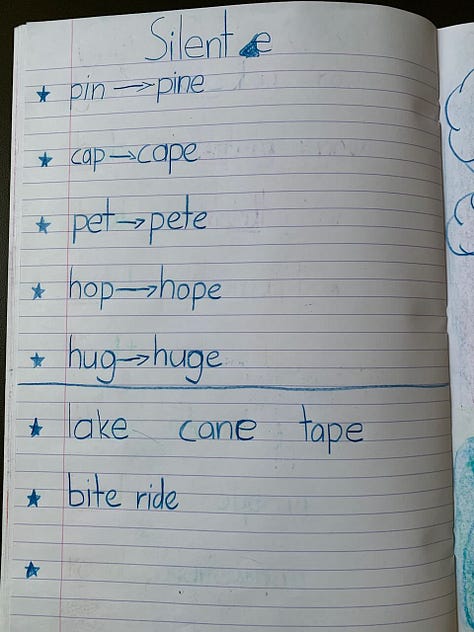
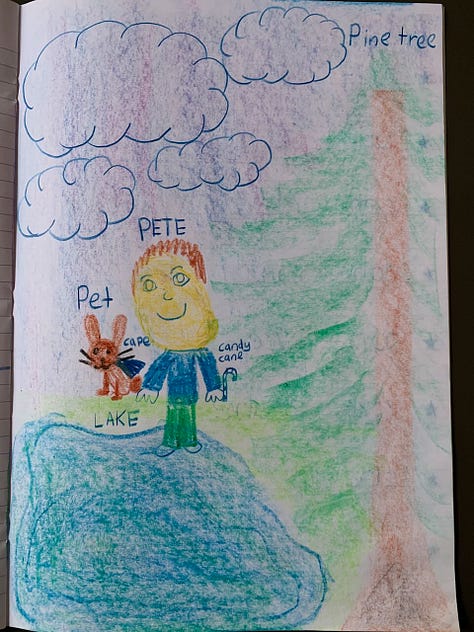
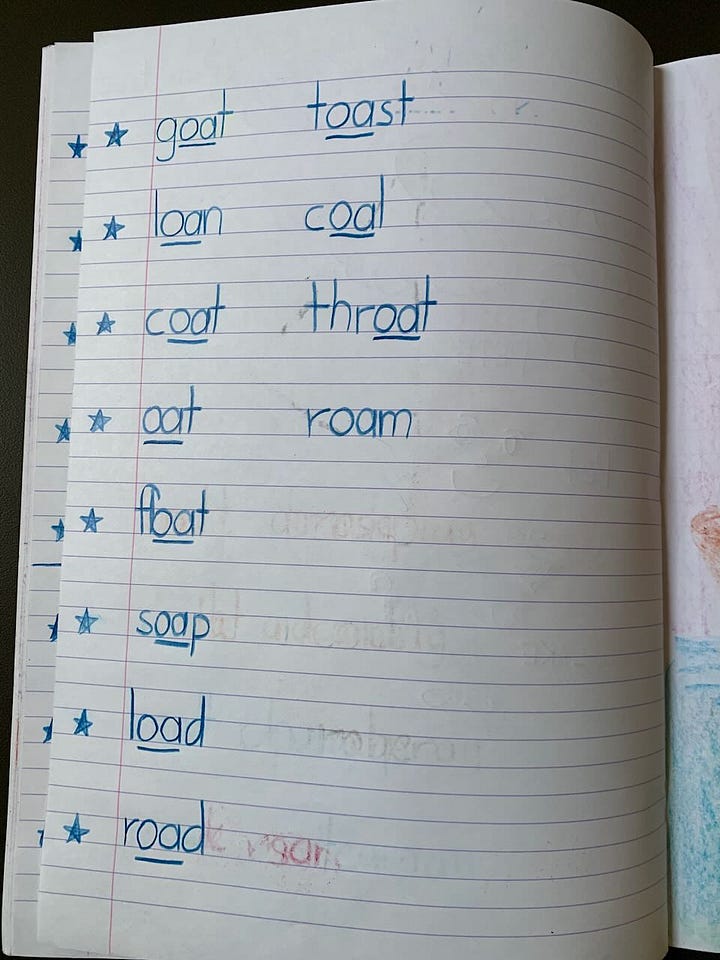

Probably like many teachers, I love looking at student writing, and this was especially true in 2nd grade. I felt like I learned so much about what they understood by reading through their writing. This is why for many years I prioritized holding onto my students’ written drafts as evidence of their learning (and why in last week’s post I mentioned my ongoing question about the value of main lesson pages).
Though I’ve come around a bit on the value of completing those beautiful pages, I’m still pretty darn convinced that written drafts are incredibly helpful when it comes to understanding how a student learns.
The Writing Path to Reading vs. Phonics
So, we’ve established that I think having students write early and often is a very good thing. But it’s also true that I believe they need direct phonics instruction.
I think Waldorf teachers embraced the whole language approach for far too long, and I’m not the only one saying so. The Waldorf world can be forever grateful to Janet Langley and her co-author Jennifer Militzer-Kopperl for giving us another path forward in Roadmap to Literacy.
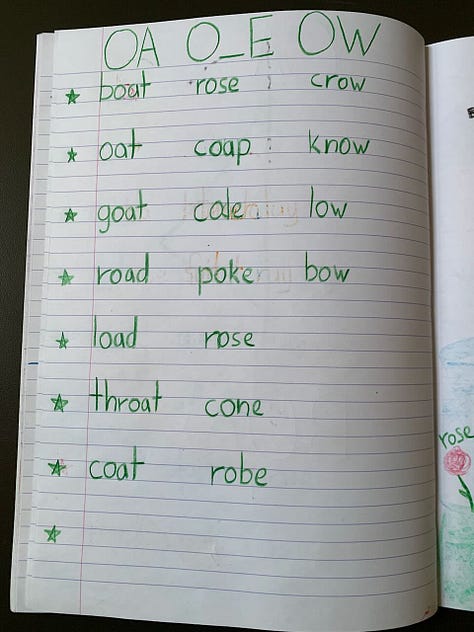
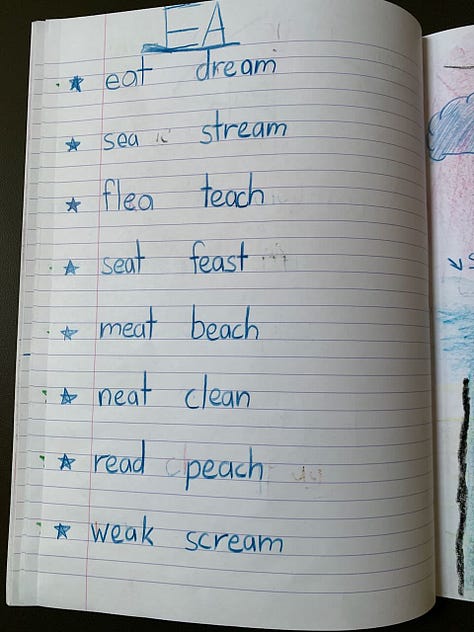

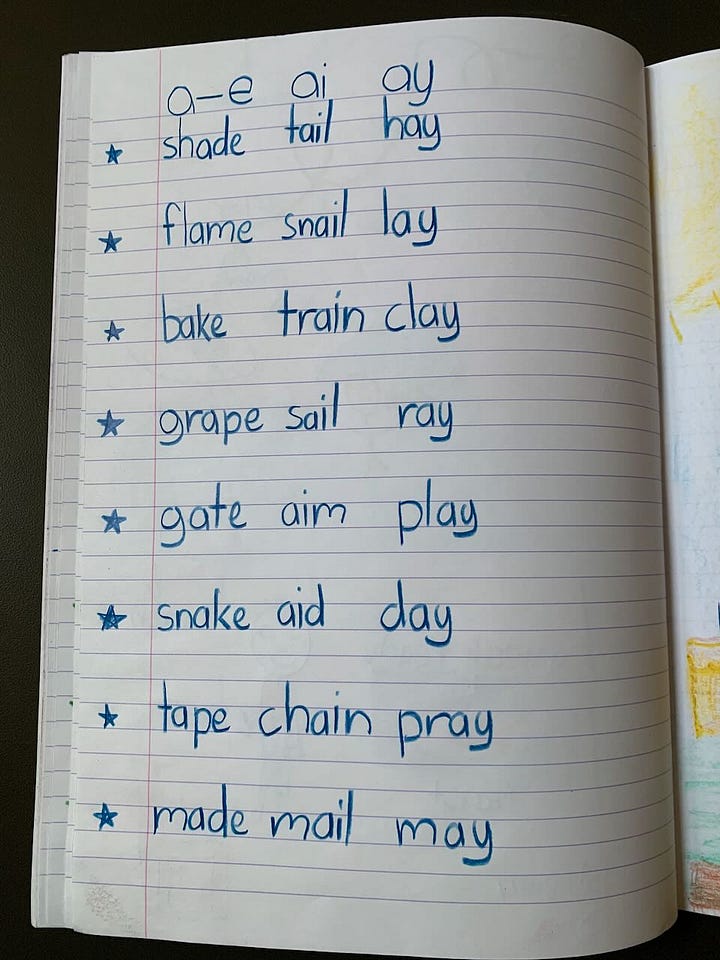
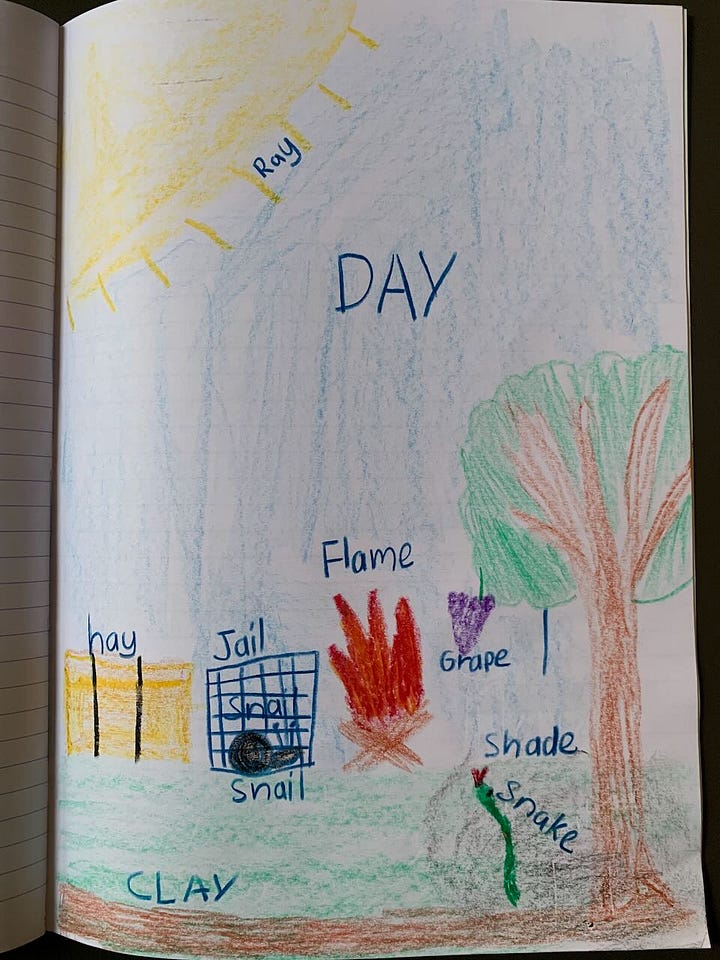
Though my own children’s path to reading was difficult because their teachers weren’t provided with a clear alternative to whole language reading instruction, my own students were fortunate that Roadmap to Literacy came out the summer before second grade. I can honestly say that our second-grade year would have been completely different without that book.
This is what I thought about when I looked through these photos. We had sweet little phonics practice books, and I came up with various ways to practice those phonics. And can I tell you how much my heart sang when I saw them put those phonics to use in their kid-writing?! It’s the stuff teacher dreams are made of.
I’m working on putting some of those practice strategies together in a companion workbook of sorts for Roadmap to Literacy, and if you’re a paid subscriber, you can click the link below to download the phonics reader template I made. My students loved these little “books” I wrote and they illustrated.
And if you’re interested in knowing more about teaching phonics in 2nd grade, check out my 2nd grade curriculum guides. They lay it all out.
Keep reading with a 7-day free trial
Subscribe to Waldorf at Work to keep reading this post and get 7 days of free access to the full post archives.




